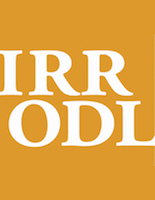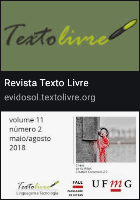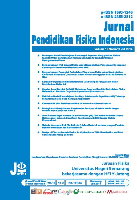
Journal of Interactive Media in Education
Scope & Guideline
Shaping Engaging Learning Experiences with Technology
Introduction
Aims and Scopes
- Innovative Learning Approaches:
The journal emphasizes research on innovative pedagogical approaches, particularly those integrating technology and interactive media to improve student engagement and learning outcomes. - Accessibility and Inclusivity in Education:
A core area of focus is understanding and improving accessibility in educational technologies, ensuring that diverse learner needs are met, and promoting equitable access to learning resources. - Professional Development for Educators:
The journal highlights the importance of ongoing professional development for educators in the context of digital transformation, exploring how educators can adapt to and utilize new technologies effectively. - Impact of Social Media and Digital Communities:
Research on the role of social media and digital communities in education is a consistent theme, examining how these platforms can enhance collaboration, engagement, and identity formation among learners and educators. - Open Education and Learning at Scale:
The journal also focuses on open educational practices and the scalability of learning through MOOCs and other online platforms, analyzing their impact on educational systems and individual learning experiences.
Trending and Emerging
- MOOCs and Learning at Scale:
Research on MOOCs continues to grow, with a focus on understanding their impact on learner engagement, accessibility, and the overall landscape of higher education, as well as their legacy and future potential. - Digital Wellbeing and Mental Health:
There is an increasing emphasis on the intersection of technology and mental health, exploring how digital tools can support positive learner identities and enhance student wellbeing in technology-enhanced learning environments. - Critical Media Literacy:
Emerging research on critical media literacy highlights the importance of equipping learners with skills to navigate and analyze information in digital contexts, particularly in response to the rise of misinformation. - Hybrid and Flexible Learning Models:
The trend towards hybrid and flexible learning models is gaining traction, with research focusing on student agency, self-regulated learning, and the effectiveness of blended learning environments. - Equity and Access in Education:
There is a strong focus on equity and access issues, particularly in low-resource contexts, emphasizing the need to address barriers to learning and promote inclusive practices in digital education.
Declining or Waning
- Traditional Classroom Practices:
Research focusing on traditional, non-digital classroom practices is becoming less frequent as the emphasis shifts towards innovative and technology-enhanced learning environments. - Static Educational Resources:
There is a notable decline in studies centered on static educational resources, such as traditional textbooks, as more research highlights the need for interactive, adaptive, and engaging learning materials. - Generalized Educational Research:
The scope of generalized educational research that lacks a specific focus on technology integration or interactive media is diminishing, with a growing preference for research that addresses specific technological applications in education. - Conventional Assessment Methods:
Research on conventional assessment methods is waning as the journal increasingly prioritizes studies that explore alternative and innovative assessment strategies in digital and hybrid learning environments. - Limited Scope of Microcredentials:
While microcredentials were once a hot topic, the focus on their limited application and impact is decreasing, as more emphasis is placed on broader frameworks for professional development and lifelong learning.
Similar Journals

International Review of Research in Open and Distributed Learning
Fostering Collaboration in the World of Open EducationInternational Review of Research in Open and Distributed Learning (ISSN: 1492-3831) is a premier academic journal published by ATHABASCA UNIVERSITY PRESS, focusing on the dynamic fields of open and distributed learning. As an open access journal since 2001, it facilitates the widespread dissemination of research findings, promoting global access to cutting-edge scholarship. This journal has earned accolades such as a Q1 ranking in Education and a Q2 ranking in E-learning, reflecting its vital role in advancing knowledge in these critical areas. With impressive rankings in Scopus, where it stands at Rank #208 out of 1543 within Social Sciences: Education, the journal appeals to researchers, educators, and institutions striving to innovate and improve remote learning practices. Located in Canada, the journal looks ahead to its converged years from 2000 to 2024, ensuring a forward-thinking approach to the evolving landscape of education. By providing a platform for high-quality research, the International Review of Research in Open and Distributed Learning continues to shape the future of educational practices globally.

Texto Livre-Linguagem e Tecnologia
Advancing Knowledge in Linguistics and Digital Innovation.Texto Livre-Linguagem e Tecnologia is a prominent academic journal published by the Federal University of Minas Gerais, Faculty of Letters, specializing in the interdisciplinary domains of language, technology, and communication. Since its establishment, the journal has embraced an Open Access model, fostering unrestricted dissemination of research findings. With an ISSN of 1983-3652, it aims to bridge theoretical insights and practical applications in linguistics and technology, thereby enriching scholarly dialogues worldwide. The journal's recent classifications in the 2023 Category Quartiles highlight its relevance, achieving Q3 in Communication, Q4 in Computer Science Applications, and Q2 in Linguistics and Language. Additionally, it has earned respectable Scopus rankings, placing it within the 71st percentile for Language and Linguistics in the Arts and Humanities. This positions Texto Livre as a vital resource for researchers, professionals, and students keen on exploring the dynamic interplay between language and technology. By engaging with cutting-edge research, contributors and readers alike can shape the future discourse in these critical fields.

E-Learning and Digital Media
Redefining learning experiences through digital media.E-Learning and Digital Media, published by SAGE Publications Inc, is a premier academic journal dedicated to the innovative intersection of digital technologies and education. With a strong commitment to advancing research in the fields of education and computer science, this journal has established itself as a vital resource for researchers, professionals, and students alike. As of 2023, it proudly holds a Q2 ranking in both Computer Science Applications and Education, reflecting its impact and reach within the academic community. The journal encompasses a wide range of topics exploring the effectiveness and applications of e-learning technologies, pedagogical strategies, and digital media in educational settings. Since its inception in 2009, E-Learning and Digital Media has continuously contributed to the understanding and development of digital education, ensuring relevancy in an ever-evolving landscape. With an open access model intended to foster accessibility and dissemination of knowledge, this journal invites submissions that push the boundaries of traditional education through cutting-edge research and practice.

Jurnal Pendidikan Fisika Indonesia-Indonesian Journal of Physics Education
Connecting Researchers and Educators for Impactful LearningJurnal Pendidikan Fisika Indonesia-Indonesian Journal of Physics Education is a premier open-access journal dedicated to advancing research and pedagogy in the field of physics education. Published by Universitas Negeri Semarang, this journal aims to provide a platform for educators, researchers, and professionals to disseminate innovative teaching practices, empirical studies, and theoretical insights that contribute to the enhancement of physics education globally. With a commitment to accessibility since its inception in 2009, the journal is instrumental in fostering collaboration and knowledge sharing across the international physics education community. The journal not only serves as a vital resource for scholars and practitioners but also plays a significant role in shaping the future of physics teaching and learning in Indonesia and beyond. Researchers and educators are encouraged to submit their manuscripts to engage with the latest trends and research in this dynamic field.

Profesorado-Revista de Curriculum y Formacion de Profesorado
Empowering Educators with Innovative InsightsProfesorado-Revista de Curriculum y Formacion de Profesorado is a prominent academic journal dedicated to advancing the fields of curriculum studies and teacher education. Published by the esteemed Universidad de Granada's Grupo Investigación FORCE, this Open Access journal has been fostering scholarly communication since 1998, ensuring that research is easily accessible to a global audience. With an ISSN of 1138-414X and an E-ISSN of 1989-6395, it is a respected voice in the education community, currently rated Q3 in Education for 2023, showcasing its relevance and contribution to the discipline. The journal encompasses a wide range of topics related to pedagogy, curriculum development, and teacher professional development, aiming to provide innovative insights and promote best practices among educators. Its Scopus ranking reflects its standing in the field, placing it at #793 out of 1543 in the Social Sciences - Education category, in the 48th percentile, indicating a competitive niche within academic research. Based in Granada, Spain, this journal plays a crucial role in bridging educational theory and practice, making it an essential resource for researchers, practitioners, and students committed to enhancing educational experiences.

Revista Educaonline
Fostering Interdisciplinary Dialogue in Digital EducationRevista Educaonline is a premier academic journal published by the Federal University of Rio de Janeiro's School of Communication, dedicated to advancing the field of online education and digital communication technologies. With the ISSN 1983-2664, this journal serves as an essential resource for researchers, educators, and practitioners exploring innovative methodologies and pedagogical frameworks in the digital landscape. Although the journal currently does not offer Open Access, it maintains a rigorous selection process to ensure the publication of high-quality research pertinent to contemporary educational practices. The editorial board is committed to promoting interdisciplinary discourse that bridges technology and education, fostering advancements that respond to the evolving needs of learners worldwide. As scholars strive to navigate the complexities of digital learning, Revista Educaonline stands out as a vital platform for disseminating impactful research, ultimately enriching the academic community's understanding of online education dynamics.

International Journal for Technology in Mathematics Education
Advancing interdisciplinary approaches in mathematics education.International Journal for Technology in Mathematics Education (ISSN: 1744-2710, E-ISSN: 2045-2519) is a pioneering platform published by Research Information Ltd that focuses on the interplay between technology and mathematics education. Established to bridge the gap between pedagogical practices and technological advancements, this journal connects researchers, educators, and practitioners in a bid to enhance teaching methodologies and optimize learning outcomes in mathematics. Although its coverage in Scopus was discontinued after 2020, it continues to be a vital resource for those interested in the integration of technology into educational settings. With its significant emphasis on interdisciplinary approaches, the journal has garnered attention in the realms of social sciences and computer science, with Scopus rankings reflecting its niche contributions. This journal is crucial for professionals aiming to explore innovative techniques in mathematics education, making it an invaluable addition to any academic library.

ReiDoCrea-Revista Eectronica de Investigacion y Docencia Creativa
Transforming Learning Through Innovative StrategiesReiDoCrea-Revista Electrónica de Investigación y Docencia Creativa is a distinguished academic journal published by UNIV GRANADA, FAC CIENCIAS EDUCACION, aimed at advancing research and innovative teaching practices in the field of education. With its inception in 2012, this Open Access journal ensures that research findings and educational strategies are accessible to a global audience, fostering collaboration and development among educators, researchers, and students. While its H-index is currently not specified, ReiDoCrea is committed to publishing high-quality, peer-reviewed articles that stimulate scholarly dialogue and reflection on pedagogical innovation. Its relevance in the educational landscape is underscored by its focus on creative approaches to teaching and learning, making it an essential resource for those seeking to enhance educational practices. With a commitment to impactful research dissemination, ReiDoCrea provides a vital platform for sharing insights and innovations that contribute to the evolution of educational methodologies.

Chemistry Teacher International
Innovating Teaching Strategies for Tomorrow's ChemistsChemistry Teacher International is a prominent peer-reviewed journal dedicated to the field of chemistry education, published by WALTER DE GRUYTER GMBH. With its Open Access policy since 2018, this journal ensures that research is widely disseminated to educators, researchers, and practitioners globally. Located in Berlin, Germany, it aims to promote innovative teaching methodologies and practical applications in chemical sciences. The journal has consistently achieved a Q2 ranking in both the Chemistry (Miscellaneous) and Education categories as of 2023, reflecting its relevance and impact within the academic community. Over its converged years from 2019 to 2024, Chemistry Teacher International fosters a collaborative platform for sharing research, insights, and pedagogical strategies, thereby contributing to the advancement of chemistry education on a global scale.

International Journal of Technology in Education
Connecting Innovators in Technology and EducationThe International Journal of Technology in Education, published by the International Society for Technology Education & Science (ISTES), serves as a vital platform for researchers, educators, and practitioners devoted to the intersection of technology and educational practices. With an E-ISSN of 2689-2758, this journal aims to showcase innovative research, case studies, and theoretical contributions that explore how emerging technologies can enhance teaching and learning. Although specific metrics like impact factor and HIndex are currently unavailable, the journal is committed to rigorous peer review and high academic standards, ensuring that all published work contributes meaningfully to the evolving landscape of educational technology. As an open-access journal, it strives to make research widely available, fostering collaboration and knowledge sharing among its audience. Whether you are a researcher exploring new horizons or a professional seeking practical applications of technology in education, the International Journal of Technology in Education is an indispensable resource.